#Keita Mukae
Explore tagged Tumblr posts
Text

#Manga#Tomoko Yamashita#Sankaku Mado no Sotogawa wa Yoru#The Night Beyond the Tricornered Window#Erika Hiura#Keita Mukae#Sakaki Kazuomi
6 notes
·
View notes
Photo
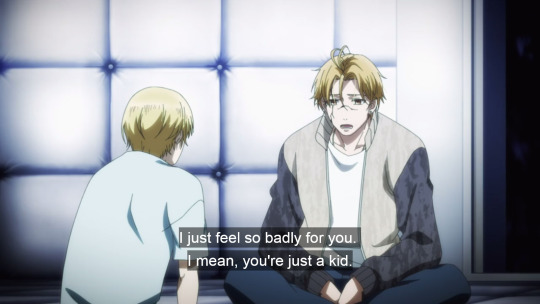
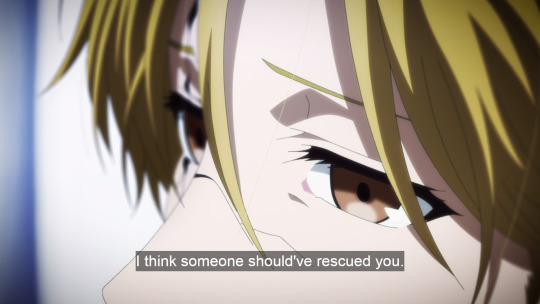
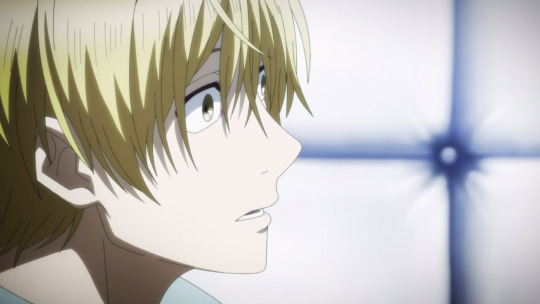
I love how Mukae is so gentle with the young version of Hiyakawa ~
Sankaku Mado no Sotogawa wa Yoru (The Night Beyond the Tricornered Window) - Episode 11
#Sankaku Mado no Sotogawa wa Yoru#The Night Beyond the Tricornered Window#anime#Hiyakawa Rihito#Mukae Keita#shounen ai#anime shounen ai
81 notes
·
View notes
Photo
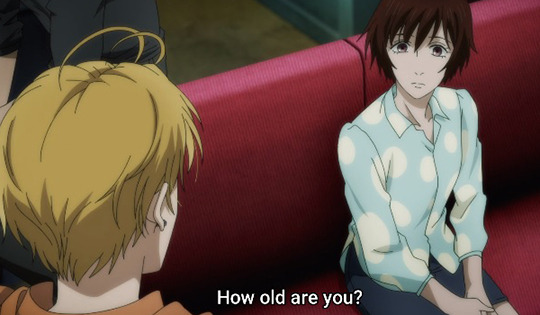
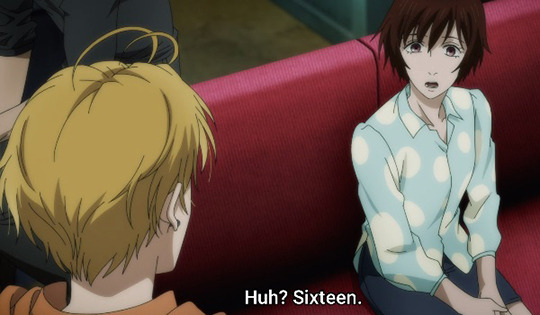

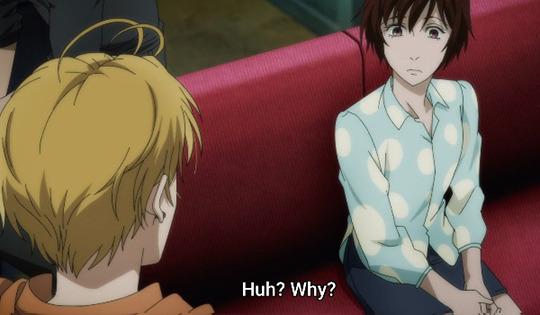
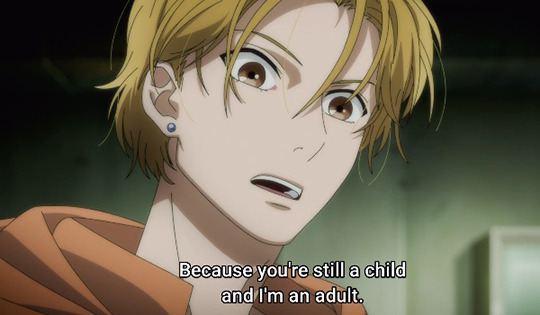
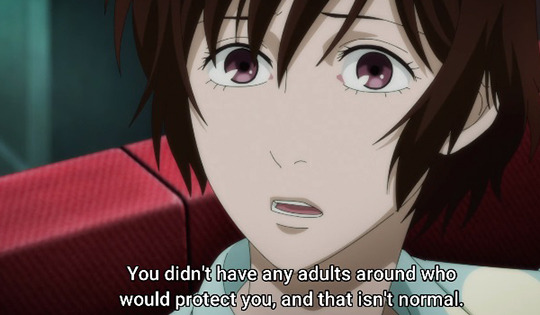
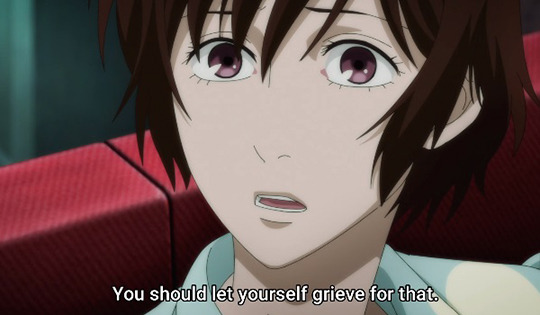
This moment had the same energy as Reigen in Mob Psycho lecturing the antagonists because they were fighting children instead of protecting them. The fact that I didn’t see Keita in the live action is a crime.
#Sankaku Mado no Sotogawa wa Yoru#the night beyond the tricornered window#keita mukae#erika hiura#long post#it's an anime season of visual kei vampires and gay mediums
274 notes
·
View notes
Photo
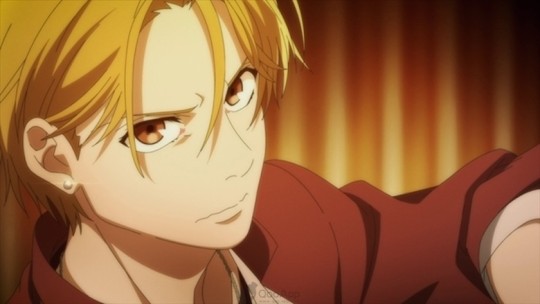

7 notes
·
View notes
Text
I like how the eyes of all these believers with spiritual power are always drawn with those white triangles on their eyes...
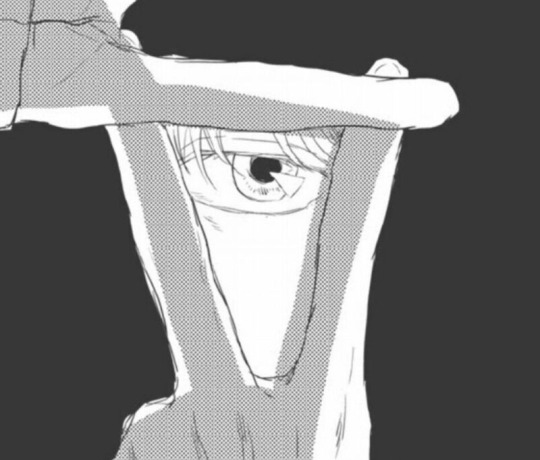
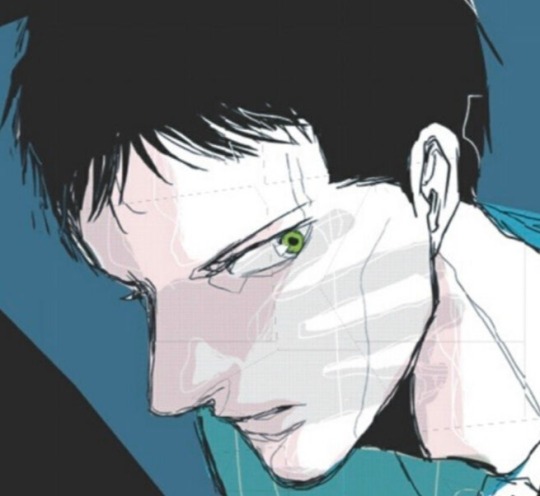
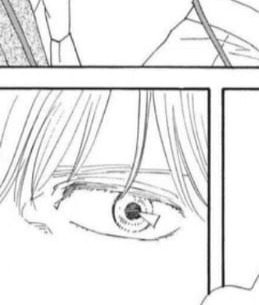
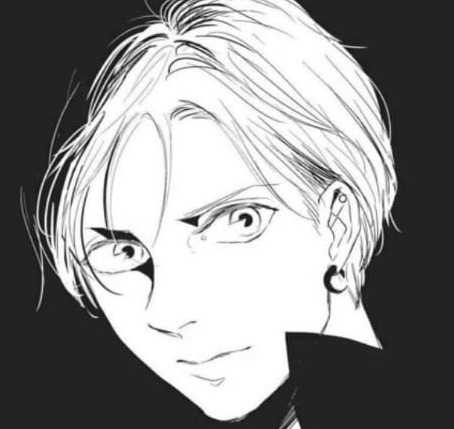

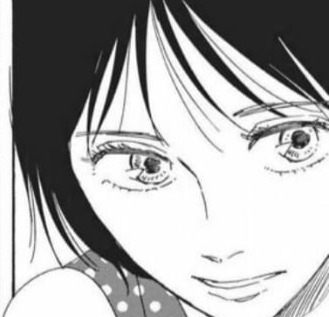
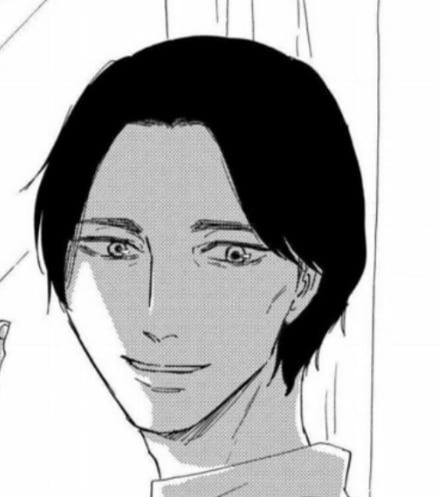
and then we got Hanzawa, the only one whose power is 'not believing'...
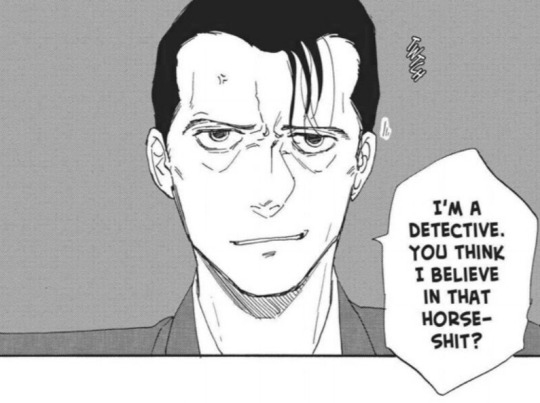
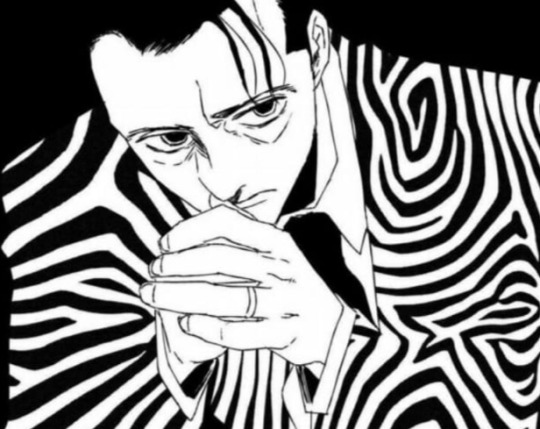
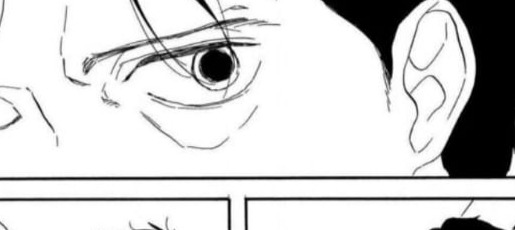
Whose eyes deep and dark like the black hole, just how curses pass through inside him and disperse...
#he's a really cool ojisan isn't he#I think Sensei drew them differently for Hanzawa on purpose#sankaku mado no sotogawa wa yoru#the night beyond the tricornered window#mikado kousuke#hiyakawa rihito#hiura erika#hanzawa hiroki#mukae keita#manga#anime#q#さんかく窓の外側は夜
118 notes
·
View notes
Photo
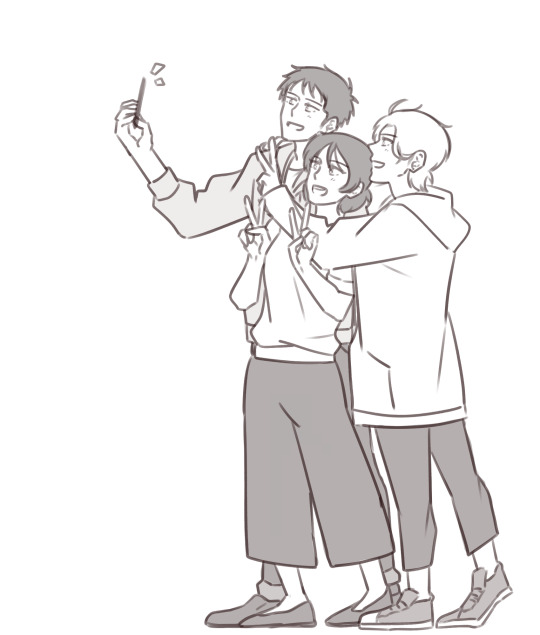
30/03/2022
Hanging Out 🥰
#sankaku mado no sotogawa wa yoru#the night beyond the tricornered window#mikado kousuke#hiura erika#mukae keita#my art
31 notes
·
View notes
Photo
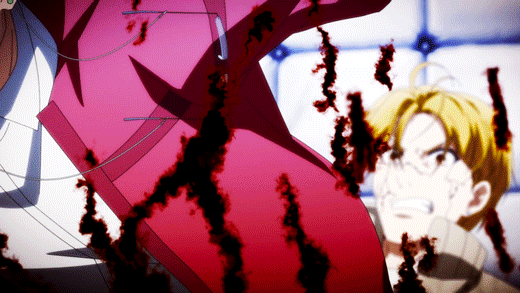
What did Mukae here at the moment of switching places with Mikado? Did he unseal the “tail” Hiyakawa put on him?
#sankakumado#Sankaku Mado no Sotogawa wa Yoru#The Night Beyond the Tricornered Window#mukae keita#mikado kousuke#hiyakawa rihito
29 notes
·
View notes
Text
A preview of the first drama CD (Vol.1)
It’s going to be focus on cases that couldn’t get in the anime. The first one is the motel case (chapter 4) featuring Hiyakawa & Mikado.
The second one is the homeless man case (chapter 19) featuring Mukae & Mikado ft.Hanzawa

https://mobile.twitter.com/sankakumado_PR/status/1460895492901163018
#hiyakawa rihito#mikado kousuke#mukae keita#hanzawa hiroki#hiyamika#HNNNGH THE HEIGHT DIFFERENCE#sankaku mado no sotogawa wa yoru#the night beyond the tricornered window
11 notes
·
View notes
Text
Thinking about Mukae Keita...
His form of exorcism - where he basically talks the spirits into realising they're dead/shouldn't exist - reminds me of a dream I once had where I was getting a tattoo of a rose on my shoulder and as I was getting it done, I thought 'My mum's gonna kill me - why didn't I get it done in a place I can hide it?' This led to the thought, 'But I always said if I ever got a tattoo, it would be of my dog's face on my ankle.' (That's true btw.) Then I thought 'Therefore, this must be a dream.' So I woke up. In particular, I'm thinking about the woman's ghost that Keita exorcises at the mixer where he makes her realise that she doesn't have feet so that makes her realise she must be dead.
#mukae keita#the night beyond the tricornered window#sankaku mado no sotogawa wa yoru#dreams#anime#manga
2 notes
·
View notes
Text
remember a while ago when i said i was going to write an essay about why the night beyond the tricornered window is good, actually? well i did write the essay but volume 10 of the manga hadn't come out in english yet- but now it has! which means you can now experience all of my fav manga of 2021 in it's superior form (that is, not the anime, which is fine, but loses a lot of what I loved about the series), so for that reason, i felt like posting my "essay," because what else am i going to do with it.
[oh but first, content warnings for the manga include dubious consent (not with actual sex but the suggestive implication is similar), possessive behaviors, and horror elements including some gore/corpses. this is a supernatural manga with heavy BL elements and a near-painful level of innuendo sometimes.]
The Night Beyond The Tricornered Window Is Good, Actually
Or is it? Does it just appeal to my specific tastes so much that I can’t be normal about it? Who knows! Here’s some things I like, with an attempt made not to spoil too much of the plot.
The premise: Mikado has always been able to see ghosts, and he’s terrified of them. One day, a man named Hiyakawa comes into the bookstore where he works, takes one look at him, proclaims that Mikado is his destiny, then touches his spiritual core and uses his power to help him exorcise a ghost. This whole soul-touching thing also just happens to feel really good for both of them. Basically, using Mikado’s power makes it easier and less tiring for Hiyakawa to destroy ghosts, so he asks if Mikado wants to work with him part-time doing exorcisms. Mikado is a bit bewildered, but he agrees, in part because Hiyakawa tells him he “won’t be scared (of the ghosts) anymore” if he’s with him.
(This is not strictly true, because Mikado is still scared, but he’s never had anyone he could talk to about his powers before, so that’s something. And it does feel good.)
The first few exorcisms are a LOT of innuendo and are sometimes a bit uncomfortable (more so in the anime, though, I think, but when is that not the case with anime horniness…). Hiyakawa doesn’t have much regard for boundaries and that’s definitely played up in a pretty typical yaoi fashion. Interestingly, the author said in an interview that she didn’t think much about issues regarding mutual consent with fictional characters when she first started writing, but as time went on she started thinking about it more, and that’s really evident to me in how Hiyakawa’s lack of boundaries starts to be portrayed as a problem to be worked out, instead of just having a lot of trampled consent for the sake of horniness. So that’s one thing I really like. Mikado puts his foot down about it, and other characters often point out how it’s not really normal for Mikado to just let Hiyakawa into his soul like that.
The other characters are what really made me love the series, though. First, I think their presence really helps balance what could be just a toxic and abusive relationship and helps turn the story into one about how you can’t always fix/save someone, how it’s important to have a safe place to return to, how you can’t let hate consume you, how you might not be forgiven for your mistakes but that doesn’t mean you can’t try to improve going forward…but I get ahead of myself. Quick character rundown:
First, Keita Mukae. Mikado is asked by a coworker to investigate a fortune teller who she suspects is a fraud. Mikado pretends to be a client, Hiyakawa follows him in with astral projection, basically, and because Mukae does have spiritual powers, he sees through the ruse. He doesn’t really use his powers for his fortune telling, though, he’s just really observant and good at talking. He immediately gets off on the wrong foot with Hiyakawa because Hiyakawa casually hijacks Mikado’s body when they’re found out, and it really pisses Mukae off that Mikado is so chill about that. He’s worried about Mikado so they stay in touch. Mukae is really social but he also as a kind of unexpected wisdom about him. He has the advantage of not being tied up with much of the plot on a personal level, so he can be a voice of reason for everyone.
I think it’s really crucial that Mikado gets this new friend really early on to exist as a foil to Hiyakawa. Mukae is really vocal about how he thinks Hiyakawa is dangerous, but he also doesn’t try to drag Mikado away from him. He’s just available to show him a different way to do things, so Mikado isn’t totally isolated with Hiyakawa as the only person who understands his powers.
There’s also Hanzawa, a police detective who’s known Hiyakawa for a long time, and who comes to him sometimes to ask about weird cases. Despite working with Hiyakawa, he has a very strong lack of belief in the supernatural which is actually a power in itself when dealing with spirits—he’s immune to a lot of curses simply because his disbelief is so strong. He’s a grumpy no-nonsense older guy who’s a sort of father figure for Hiyakawa and knows his past better than anyone��which means he understands how dangerous Hiyakawa can be, so he’s also looking out for Mikado in that respect. He thinks Mikado could be good for Hiyakawa, but he also understands that it might not be possible for someone like Hiyakawa to be “saved,” no matter how good Mikado’s intentions are.
Lastly, Erika and Sakaki. Erika is a high school student with powers of necromancy who uses ghosts to curse people at the instruction of her father and this mysterious “sensei” who is paying them. Hiyakawa and Mikado run into her thanks to a case they investigate with Hanzawa. When she realizes that they’re onto her, she tells them that she actually wants to escape the organization that’s controlling her, and Mikado, being Mikado, is immediately on board. Hiyakawa, being Hiyakawa, is reluctant.
I can really go either way on whether I care about a teenage girl character in this kind of thing, but I really care about Erika. Her power is basically to allow ghosts inside her, and she sort of collects them and then uses them to curse others when ordered by Sensei. Every time she lets a ghost in, she experiences their death, and I really like the contrast between that deeply morbid quality and the fact that she really does still want to be a normal teenage girl. She doesn’t like what she’s currently doing/being forced to do (she has indirectly killed many people) and she deeply wants to become someone that she likes. There’s a scene where she visits Mukae at work, and when they leave, she encounters a friend from school, who unwittingly walks right into a ghost. Mukae and Erika have to scramble to save her, and by the end, the classmate is like, “oh my god, that was scary, wasn’t it??” and Erika realizes that all along she’s really just wanted someone to be like “yes, this IS scary.” She’s accustomed to the way she’s forced to live, but slowly starts to realize that she shouldn’t be accustomed to it, she should be upset about it, and she deserves better even if she’s hurt a lot of people.
Sakaki is her bodyguard. He sort of works for the gang that’s connected to Sensei, but he’s more on Erika’s side than on their side—he basically stood up for her when she was first brought to Sensei by her father, and he wants her to escape, he just hasn’t been able to think of a way to do it. He’s 28 but looks scary enough that no one is surprised he’s yakuza, and he's essentially the muscle of the group. He’s a very good older brother figure.
That’s all the main characters, but special mention to Mikado’s mom. Mikado grew up never knowing his dad, who left when he was young, and his strong relationship with his mom is the “thing he can return to." I feel like it’s another thing that really balances his relationship with Hiyakawa—he has such a stable anchor that he can afford to take the risk of getting closer to Hiyakawa and trying to figure him out, as opposed to getting irreversibly swallowed up by Hiyakawa’s isolation.
The plot is largely driven by Erika’s desire to escape Sensei’s organization. Mikado, as I said, very much wants to help, and Hanzawa gets roped in on the legal/non-supernatural side of things after he runs into Erika by chance and she panics and curses his wife (and then, after some coaxing from Mikado, un-curses her). Hiyakawa does not want to help because he doesn’t see how it benefits him, but he’s convinced by Mikado’s insistence and his desire to stay close to Mikado. Then Mikado calls in Mukae, who also doesn’t want to get involved, but who’s too nice to do nothing when he sees Erika’s situation.
As a side note, I think the moment in the anime that made me think “oh. I need to read this manga. I Care about these people,” was during their first meeting all together, when Mukae tells Erika that she can come talk to him (at his fortune telling/therapy job) for free, as long as she makes an appointment, because “you’re still a kid, and I’m an adult.” He tells her that it isn’t normal that she never had an adult to rely on, and she’s allowed to be angry about it, and something about that moment was so unexpectedly sincere and real to me for the treatment of a kid stuck in this kind of situation in a manga. The themes of child abuse with regard to both Erika and Hiyakawa (because yes, of course he has a tragic past) felt very well-handled to me.
I suppose I didn’t really talk much about Hiyakawa, and without going too deeply into his Trauma (which is a Lot) I really like how his past makes his behavior make sense without excusing it. His social skills are abysmal, he doesn’t understand his own emotions, and despite being convinced that Mikado is his “destiny,” he doesn’t see a problem in doing whatever he wants with him (by which I mean the dubious-consensual spirit touching, but also attaching a sort of spiritual leash to him without Mikado knowing, casually taking over his body a couple times, teleporting him to a sort of cursed house they investigated once to hang out with the not-yokai (but basically a yokai) who lives there whenever he doesn’t want to deal with Mikado’s “violent goodwill” etc). This is obviously all very toxic and possessive, and while it definitely is used for like, ~the yaoiz~ to a degree, it also feels convincing for how he grew up. He breaks because he was broken, he’s full of a deep hatred that was probably the only thing to save him once and now he’s terrified of letting go of it, and he’s terrified of letting Mikado see any of this in case he decides to turn his back on him.
Forgiveness and lack thereof, and belief and lack thereof, are threaded through the whole manga. Mikado is adamant that he doesn’t forgive Erika for what she’s done—but he’s equally adamant that he believes in her desire to become a better person. The same goes for Hiyakawa and, in the end, Sensei. I kind of like how, while Mikado is to some extent that very typical “I’m gonna save everyone!” hero-of-justice-y sort of protagonist in some ways, it’s balanced by this insistence that the people he’s dealing with face what they’ve done. He isn’t abandoning them, but he’s not letting them off the hook, either. He’s naïve, but it’s not played out to the extreme that some stories take it to. And, he has people like Mukae and Hanzawa to caution him against getting too idealistic.
Alongside forgiveness, hatred also plays a central role. Curses are based in malice and hate, so deep hatred can lead to power. Sensei and Hiyakawa parallel each other in that they both harbor a hatred that neither of them can fathom living without. I like how there’s an acknowledgement that those emotions did, at one point, have a use. Hiyakawa’s hatred probably saved him once, but the story also points out how continuing to cling to that hatred would destroy him like it did Sensei. Erika too could easily end up like either of them and it wouldn’t be unjustified, but she has people around her to help her find other ways out.
Child abuse and parenthood are also recurring themes. Erika, Hiyakawa, and Mikado all have to grapple with having a parent who doesn’t care for them as a parent should. I think this is really well-written throughout. Without spoiling too much, there is a heavy emphasis on how being blood-related means little if the person in question doesn't act like a family member should. I came to this anime/manga for the horny exorcisms, but I stuck around for the found family.
I’ll talk a little bit about Mikado and Hiyakawa’s relationship, too. This manga feels a little hard to categorize for me because I feel like it both is and isn't a BL. The author insists it is, and you can't ignore the sexually charged exorcisms, but there isn't exactly what I would call a romance. I don’t really think this is a bad thing. Hiyakawa and Mikado don’t really have much romantic chemistry or even like, sexual tension, outside of the exorcism thing. Given that Hiyakawa “doesn’t see exteriors” and Mikado is really only shown as being attracted to women, I don’t even think you could argue that either of them are gay or bi. The “I’m not gay except for you” trope usually annoys me but this isn’t really the same thing, it feels more like an exploration of how two people could be attached to each other in a way that isn’t defined by traditional descriptions. They’re more than friends and less than lovers, they’re consistently having soul-sex, everyone around them thinks they’re together (Mikado denies it most of the time)…it's a relationship that doesn't really have a simple description. Hiyakawa thinks Mikado is his destiny, he feels at ease when touching Mikado’s core, and he sees Mikado as the important thing he doesn’t want to lose. Mikado is a little overwhelmed by the attachment Hiyakawa has for him, but he still wants to understand Hiyakawa—although he also wants Hiyakawa to open up to him willingly. (To the point where he’s actually really reluctant to even google Hiyakawa’s past even after Hanzawa is like “you don’t know about that???”) Like I mentioned before, working through consent and communication issues becomes a major aspect of their developing relationship, and even if it was a result of the author realizing the problems with how she was writing Hiyakawa, I think it works really well. Hiyakawa is terrified of Mikado learning more about him and turning away from him—but Mikado points out that the thing that’s most likely to make him abandon Hiyakawa is if Hiyakawa keeps throwing him into yokai’s houses when conversations get difficult, not the things he’s done in the past. He wants to make things work, and Hiyakawa slowly realizes that there are better ways to keep a guy close to him than tying a spiritual leash to his back. As much as I was complaining about it before, I do think the whole arc is satisfying even without any kind of explicit romance.
There are a couple other miscellaneous things that I just kind of enjoy, one of them being the way no one with spiritual powers totally knows what they’re doing with them. Hiyakawa exorcises ghosts using his past experience and stuff he’s read on the internet, Mukae seems to do stuff mostly on Vibes, and Erika learned from Sensei, who presumably is self-taught. I think this blends really well with the idea of belief having inherent power—it’s sort of like, they work out the logic to certain situations and if they believe that logic is sound, the exorcism will probably work. It’s something that could have felt lazy, but I think it’s consistent enough throughout that it works.
I don’t have much of a conclusion here except that the cast is really, in the end, what sold me on this. I like every character and all the ensemble scenes are really entertaining and natural, in the manga especially. From the few other works of her that I've read, I think Tomoko Yamashita has a talent for writing realistic and fully fleshed-out characters that really elevated this series from what could have been just a fun manga with a kind of ridiculous premise to something a bit more meaningful. I personally prefer the manga, because I find the art style extremely charming and I think it gives the characters, especially Mikado, a lot more personality, but the anime isn't bad, although it skips a few exorcisms and glosses over some details that I feel are actually kind of important.
If you read all of this, major kudos?? here's mikado and hiyakawa as a reward:
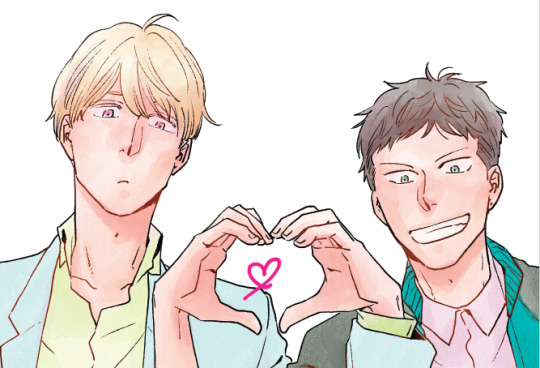
The interviews with Tomoko Yamashita are here and here.
#elsa told me this was well-organized but i'm not sure if it is haha#i mean there was an attempt but i sort of just infodumped#if this shows up in the tags i'm. sorry. kinda just wanted to get it out of my system#sort of rethinking how i want to use tumblr#which is a whole separate post but#stuff like this is fun sometimes!#as a warning also this was 4 pages long in docs so click through at your own risk
6 notes
·
View notes
Text
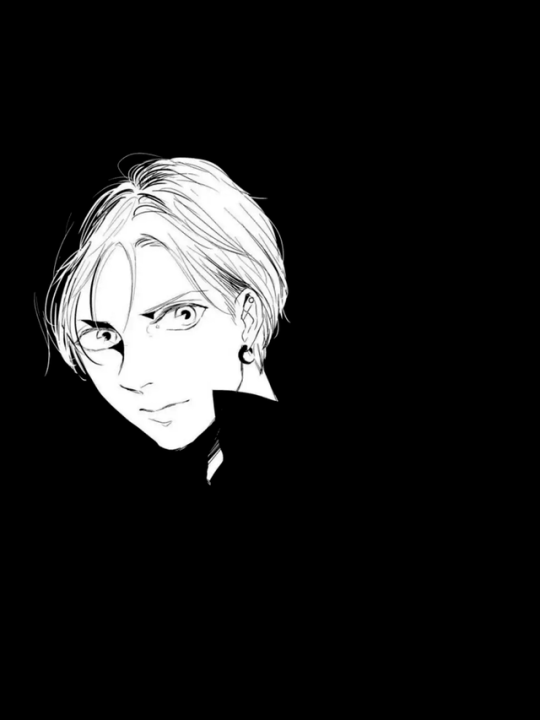
#Manga#Shounen ai#Sankaku Mado no Sotogawa wa Yoru#The Night Beyond the Tricornered Window#Keita Mukae
9 notes
·
View notes
Photo
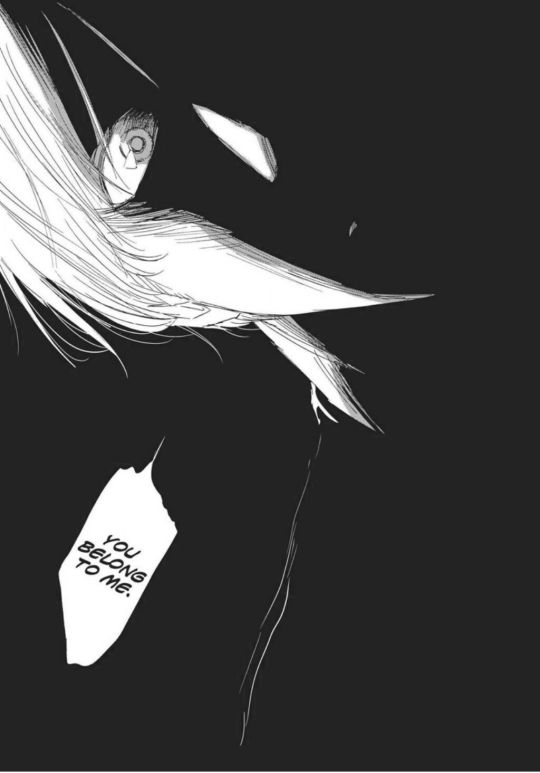
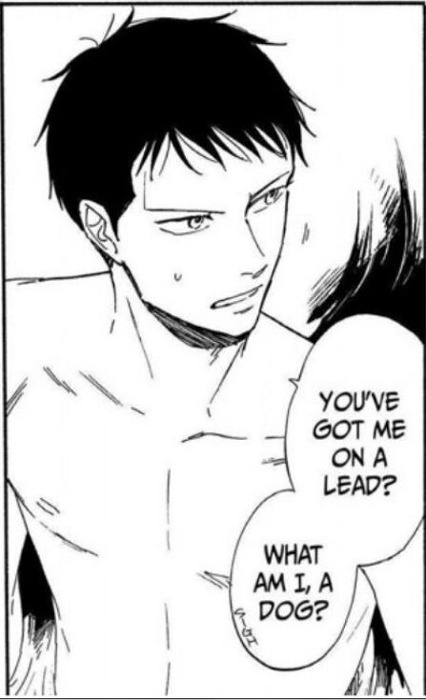
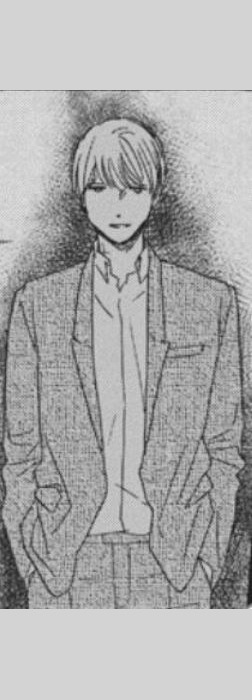
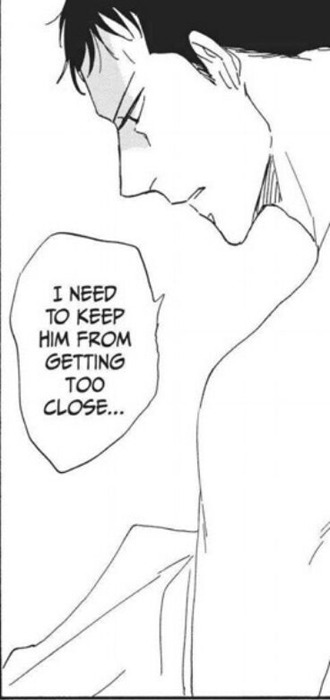
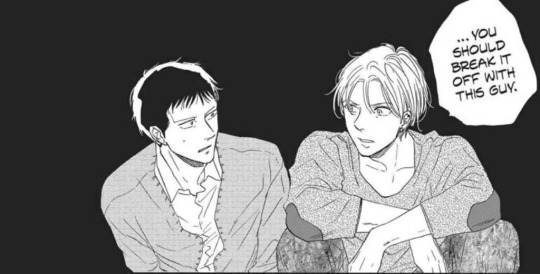

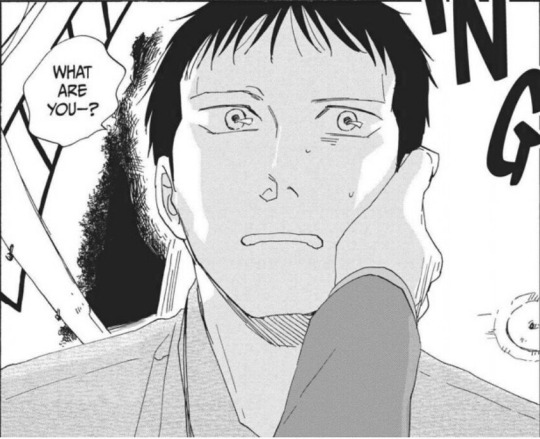
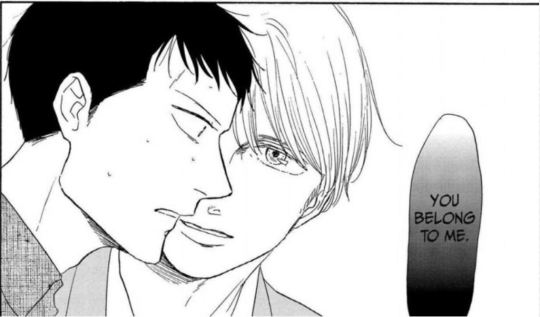
Really sometimes Hiyakawa seems hiding something and not being so good for Mikado.......
#it's obvious there's some darkness in him#cant' wait to see what it is#Hiyakawa Rihito#Mikado Kosuke#Mukae Keita#Sankaku Mado no Sotogawa wa Yoru#the night beyond the tricornered window#manga caps#Yamashita Tomoko
74 notes
·
View notes
Text
BL Mystery TV Anime The Night Beyond the Tricornered Window's New Trailer Previews More Characters
Before we read ahead to October, a brand new trailer for the upcoming TV anime adaptation of Tomoko Yamashita's boys-love supernatural mystery manga series The Night Beyond the Tricornered Window was released today, previewing some of the supporting cast and their voice actors.
youtube
Joining the lead two characters are (from left to right):
Soma Saito (William James Moriarty in Moriarty the Patriot) as Keita Mukae
Chika Anzai (Reina Kosaka in Sound! Euphonium) as Erika Hiura
Satoshi Mikami (Jerome Carlstahl in 86 EIGHTY-SIX) as Hiroki Hanzawa
Junichi Suwabe (Victor Nikiforov in Yuri!!! on ICE) as Kazuomi Sakaki
Yoshitaka Yasuda (My Roommate is a Cat animation director) is be directing The Night Beyond the Tricornered Window and drawing the character designs, with Daiji Iwanaga (My Roommate is a Cat episode director) as the Chief Director, and Ayumi Sekine (IDOLiSH7) provides the scripts. The animation is being produced at Zero-G.
The Night Beyond the Tricornered Window begins in October 2021, with Crunchyroll already announcing that they will be streaming the series as it airs in Japan. Crunchyroll describes the series as such:
Bookstore employee Mikado always had a tendency to see creepy things. He had lived his life pretending he didn't see these things but then he has a fateful encounter with an exorcist named Hiyakawa. Mikado ends up being forced to help out with exorcism duties and has to deal with the embarrassing fact that exorcising these things with Hiyakawa somehow feels really good. While getting dragged into dealing with these cases every day, they run into a cold-blooded murder case. Enjoy a new kind of horror mystery created by total opposites.
Source: Comic Natalie
----
Daryl Harding is a Japan Correspondent for Crunchyroll News. He also runs a YouTube channel about Japan stuff called TheDoctorDazza, tweets at @DoctorDazza, and posts photos of his travels on Instagram.
By: Daryl Harding
6 notes
·
View notes
Text
gee whillikers keita mukae, we're really in it now
2 notes
·
View notes
Text
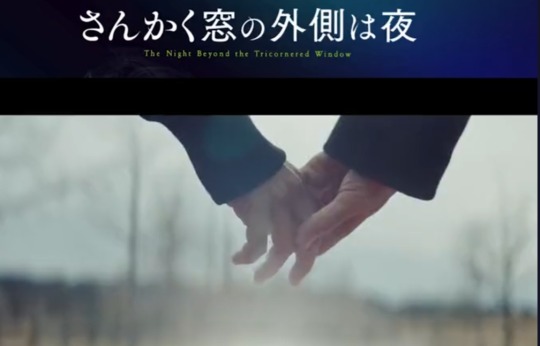
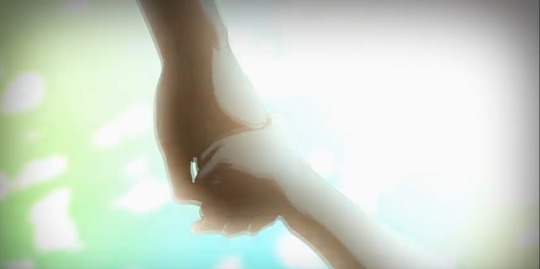
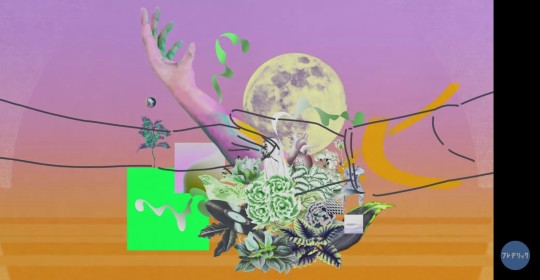
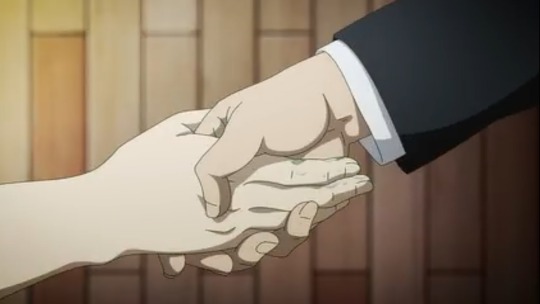
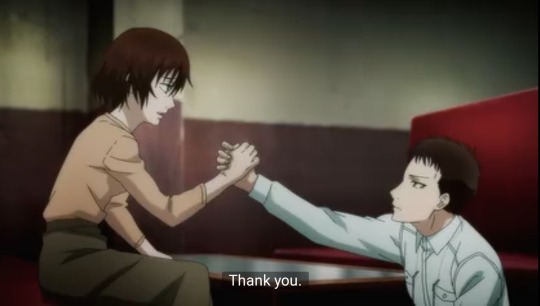
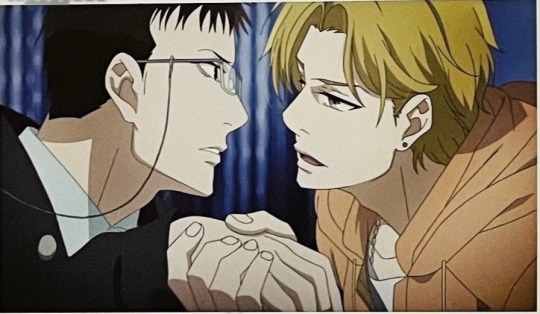
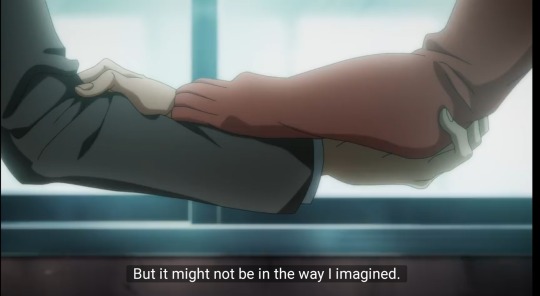
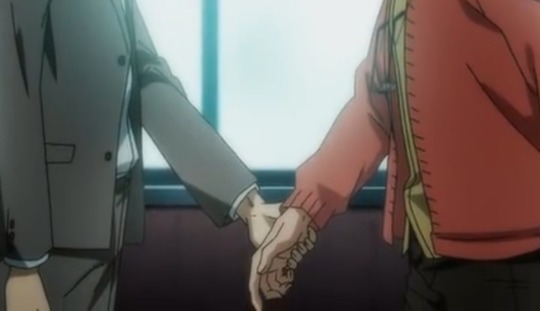

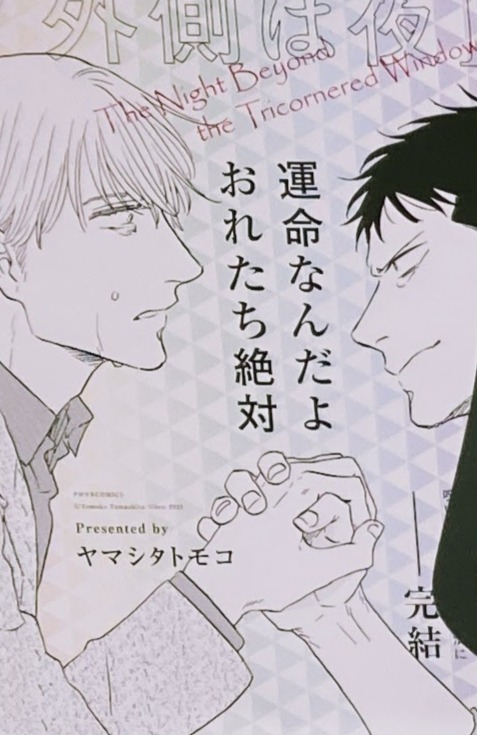
All forms of hand-holding in Sankaku Mado, each holds different meaning and power.
#no I'm not trying to be sentimental#the fact at the last pict they were both crying 😢#hanzawa hiroki#hiyakawa rihito#mikado kousuke#hiura erika#mukae keita#hiyakawa x mikado#anime#manga#symbolic#sankaku mado no sotogawa wa yoru#the night beyond the tricornered window#さんかく窓の外側は夜
42 notes
·
View notes
Photo
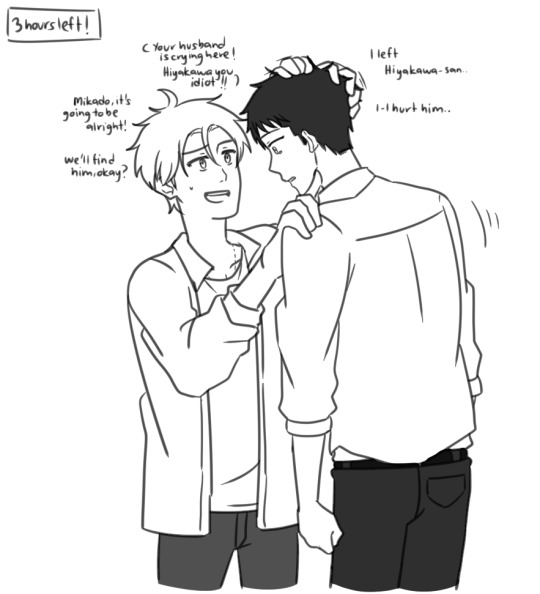
05/12/2021
Worried
#sankaku mado no sotogawa wa yoru#the night beyond the tricornered window#mukae keita#mikado kousuke#my art
33 notes
·
View notes